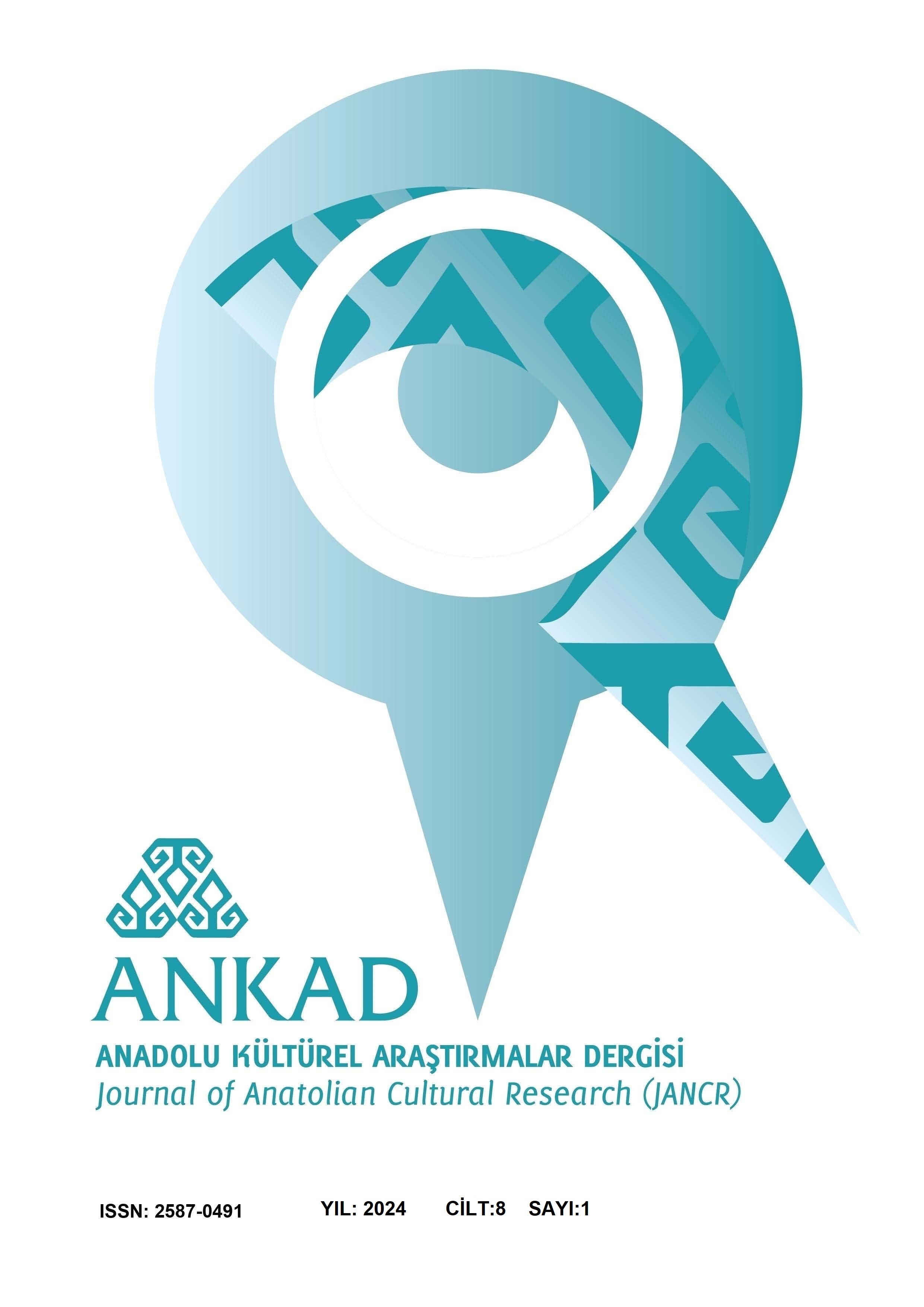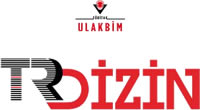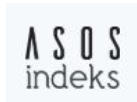Sosyal Bilgiler Dersindeki Mekânsal Okuryazarlık İçeriklerine İlişkin Öğretmen Görüşleri
DOI:
https://doi.org/10.15659/jancr.v8i1.167Anahtar Kelimeler:
sosyal bilgiler- mekân- mekânsal düşünme- mekânsal okuryazarlıkÖzet
Modern teknoloji ile birlikte bilgi edinmede yaşanan gelişim, yeni nesil veri formlarını kullanabilen bireylere olan ihtiyacı gündeme getirmektedir. Çağın gerektirdiği donanıma sahip bireylerin yetiştirilmesi noktasında mekânsal okuryazarlık eğitimine önem verilmektedir. Bu doğrultuda çalışmanın amacı, sosyal bilgiler dersindeki mekânsal okuryazarlık içeriklerine ilişkin, sınıf öğretmenlerinin farkındalığını artırmak olarak belirlenmiştir. Bu amaç doğrultusunda “Sosyal bilgiler dersinde mekânsal okuryazarlık içeriklerine yönelik öğretmen görüşleri nelerdir?” araştırma sorusuna cevap aranmıştır. Çalışmada, nitel araştırma desenlerinden durum çalışması türü olan durum analizi kullanılmıştır. Araştırma için gerekli olan veriler araştırmacı tarafından hazırlanan yarı yapılandırılmış görüşme formu ile toplanmıştır. Çalışma grubunu 26 sınıf öğretmeni oluşturmaktadır. Çalışma grubunu oluşturan öğretmenlerin 15’i kadın ve 11’i erkektir. Kaydedilen veriler, nitel araştırmalarda kullanılan veri çözümleme tekniği olan içerik analizi ile çözümlenmiştir. Kodlamaya dayalı içerik analizi yapılarak tümevarımsal bir yaklaşım izlenmiştir. Analiz yapılırken ayrıca betimsel bir yaklaşım benimsenerek öğretmenlerin görüşlerinden doğrudan alıntılar yapılmıştır. Yüz yüze yapılan görüşmeler neticesinde sınıf öğretmenlerinin konuya ilişkin farkındalıklarının arttığı düşünülmektedir. Elde edilen sonuçlardan yola çıkılarak önerilerde bulunulmuştur.
Referanslar
Anindyarini, R. & Rosnawati, R. (2019). A construct validity of spatial literacy instrument. Journal of Physics: Conference Series, IOP Publishing. doi10.1088/1742-6596/1397/1/012092
Atayeter, Y. & Tozkoparan, U. (2014). Sosyal bilgiler öğretmenleri ve 6. sınıf öğrencilerinin sosyal bilgiler dersinden gezi-gözlem yönteminin uygulanmasına yönelik görüşleri. Mehmet Akif Ersoy Üniversitesi Eğitim Bilimleri Enstitüsü Dergisi, 3(5), 1-21.
Baloğlu Uğurlu, N. & Aladağ, E. (2015). Mekânsal düşünmenin Türkiye’de sosyal bilgiler öğretim programındaki yeri ve öğretmenlerin bu beceri hakkındaki görüşleri. Marmara Coğrafya Dergisi, 32, 22-42.
Baltacı, A. (2019). Nitel araştırma süreci: nitel bir araştırma nasıl yapılır?. Ahi Evran Üniversitesi Sosyal Bilimler Enstitüsü Dergisi, 5(2), 368-388.
Bartoschek, T., Schwering, A., Li, R., Münzer, S. & Carlos, V. (2017). A mobile geogame for spatial literacy. Advances in Geographic Information Science Geogames and Geoplay, 37-62.
Bernarz, S. W. & Kemp, K. (2011). Understanding and nurturing spatial literacy. Procedia Social and Behavioral Sciences, 21, 18–23.
Büyüköztürk, Ş. ve diğerleri. (2018). Eğitimde bilimsel araştırma yöntemleri. Ankara: Pegem Akademi.
Comber, B. & Nixon, H. (2008). Spatial literacies, design texts, and emergent pedagogies in purposeful literacy curriculum. Pedagogies, 3(4), 221–240.
Çetin, T., Kuş, Z., & Karatekin, K. (2010). Sınıf ve sosyal bilgiler öğretmenlerinin gezi gözlem yöntemine ilişkin görüşleri. Gaziosmanpaşa Üniversitesi Sosyal Bilimler Araştırmaları Dergisi, 5(2), 158-180.
Demirkaya, C. & Masal, M. (2017). Geometrik-mekanik oyunlar temelli etkinliklerin ortaokul öğrencilerinin uzamsal düşünebilme becerilerine etkisi. Sakarya Üniversitesi Eğitim Dergisi, 7(3), 600-610.
Erol, F. Z. & Akpınar, E. (2021). Sosyal bilgiler eğitimi alanında yapılmış mekânı algılama becerisi konulu deneysel çalışmalar üzerine bir inceleme. Uluslararası Sosyal Alan Araştırmaları Dergisi,10(1),1-15.
Frias, D., Monfort, A. & Casteleyn, S. (2017). NavApps- a mobile game to reinforce spatial literacy for secondary school children. AGILE, Wageningen May 9-12.
Golbeck, S. L. (2005). Building foundations for spatial literacy in early childhood. Young Children, 60(6), 72-83.
Goodchild, M.F. (2006). The fourth R? Rethinking GIS education. ArcNews Online. 28(3), 1.
Gönülaçar, H. & Öztürk, M. (2020). Ortaokul öğrencilerinin mekânsal düşünme becerileri. Milli Eğitim, 49(227), 217-243.
Grossner, K. & Janelle, D.G. (2015). Concepts and principles for spatial literacy. Space in Mind, MIT Press, 239-262.
Jarvis, C.H., Kraftl, P. & Dickie, J. (2017). (Re)Connecting spatial literacy with children’s geographies: GPS, google earth and children’s everyday lives. Geoforum, 81, 22–31.
Kerri, S. W. (2010). Google earth in the middle school geography classroom: its impacton spatial literacy and place geograpy understanding of students. [Unpublished Doctoral Dissertation]. University of North Dakota Teaching & Learning Department, North Dakota.
Kim, M. (2011). Effects of a GIS course on three components of spatial literacy. [Unpublished Doctoral Dissertation]. Texas A&M University Geography Department, Texas.
Lane, D., Lynch, R. & McGarr, O. (2018). Problematizing spatial literacy within the school curriculum. International Journal of Technology and Design Education, 29, 685-700.
Macit, Ş. N. & Çoban, A. (2021). Pandemi döneminde 4. sınıf sosyal bilgiler dersinde coğrafya konularının öğretilmesinde karşılaşılan sorunlar ve öğretmen görüşleri. Türkiye Bilimsel Araştırmalar Dergisi, 6(2), 431- 441.
Milli Eğitim Bakanlığı (2018). Sosyal bilgiler dersi öğretim programı (ilkokul ve ortaokul 4,5,6 ve 7. Sınıflar), Ankara.
Moore- Russo, D. Viglietti, J. M., Chiu, M.M. & Bateman, S. M. (2013). Teachers’ spatial literacy as visualization, reasoning, and communication. Teaching and Teacher Education, 29, 97-109.
National Research Council (2006). Learning to think spatially. Washington DC: The National Academies Press.
Perkins, N., Hazelton, E., Erickson, J. & Allan, W. (2010). Place-based education and geographic information systems: enhancing the spatial awareness of middle school students in Maine. Journal of Geography, 109(5), 213-218.
Plester, B., Richards, J., Lades, M. & Spencer, C. (2002). Young children’s ability to use aerial photographs as maps. Journal of Enviromental, 22, 29-47.
Sari, E.K. & Ekawati, R. (2018). Analysis of primary students spatial literacy on reasoning. Jurnal Riset Pendidikan dan Inovasi Pembelajaran Matematika, 2(1), 15-22.
Schwering, A. Münzer, S. Bartoschek, T. & Li, R. (June, 2014). Gamification for spatial literacy: the use of a desktop application to foster map-based competencies. AGILE, 3-6.
Sönmez, F. & Akbaş, Y. (2019). Coğrafi bilgi sistemlerine (CBS) dayalı sosyal bilgiler öğretiminin 6. sınıf öğrencilerinin mekânsal düşünme becerilerine etkisi. International Journal of Geography and Geography Education, 40, 40-58.
Şanlı, C. & Injeong, J.O. (2020). Examining preservice geography teachers’ dispositions to teach spatial thinking skills. International Journal of Eurasian Education and Culture 11(5), 2069-2102.
Şanlı, C. (2020). Mekânsal düşünme becerisinin sosyal bilgiler ders kitapları sorularında analizi. International Journal of Geography and Geography Education, 42, 118-132.
Şanlı, C. (2021). Mekânsal beceri düşünme testinin geliştirilmesi. Uluslararası Avrasya Sosyal Bilimler Dergisi (IJOESS), 12(43), 1-18.
Teddlie, C. & Yu, F. (2007). Mixed methods sampling a typology with examples. Journal of Mixed Methods Research, 1(1),77-100.
Türnüklü, D. A. (2000). Eğitimbilim araştırmalarında etkin olarak kullanılabilecek nitel bir araştırma tekniği: görüşme. Kuram ve Uygulamada Eğitim Yönetimi, 24(24), 543-559.
UNESCO (2006). Literacy for life. EFA Global Monitoring Report. Paris.
Usta, G. (2020). Mekân ve yer kavramlarının anlamsal açıdan irdelenmesi. The Turkish Online Journal of Design, 10(1), 25-30.
Ünlü, M. & Yıldırım, S. (2017). Coğrafya dersi öğretim programına bir coğrafi becerisi örneği: mekânsal düşünme becerisi. Marmara Coğrafya Dergisi, 35,13-20.
Ünlü, M., Üçışık, S. & Özey, R. (2002). Coğrafya eğitim ve öğretiminde haritaların önemi. Marmara Coğrafya Dergisi, 5, 9-25.
Wu, B. S. (2013). Developing an evaluation framework of spatial understanding through GIS analysis of volunteered geographic information (VGI). Review of International Geographical Education Online, 3(2), 152-162.
Yaşar, O. (2004). İlköğretim sosyal bilgiler derslerinde görsel materyal kullanımı ile coğrafya konularının eğitim ve öğretimi. Milli Eğitim Dergisi, 163, 104-119.
Yıldırım, T. & Arıbaş, K. (2018). Coğrafya öğretiminde gezi-gözlem yöntemi: örnek bir rota çalışması. Marmara Coğrafya Dergisi, 37, 16-29.
Yılmaz Akkaya, M. Arıkan, A., & Çetin T. (2022). Mekânsal akıl yürütme testinin Türkçeye uyarlanması: Geçerlik ve güvenirlik çalışması. Journal of History School, 15 (LVI),435-458.
İndir
Yayınlanmış
Nasıl Atıf Yapılır
Sayı
Bölüm
Lisans
Telif Hakkı (c) 2024 Anadolu Kültürel Araştırmalar Dergisi (ANKAD)

Bu çalışma Creative Commons Attribution-NonCommercial 4.0 International License ile lisanslanmıştır.













